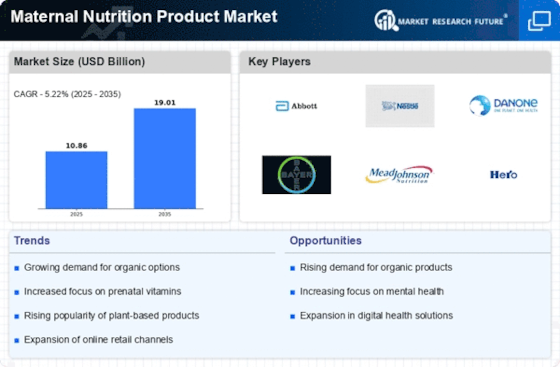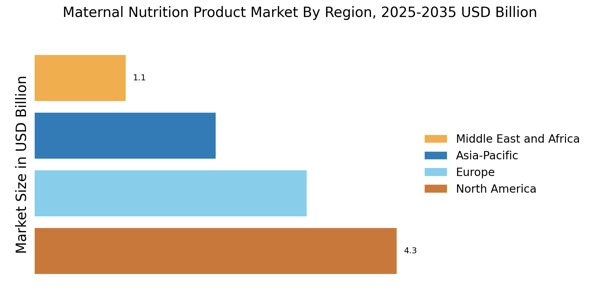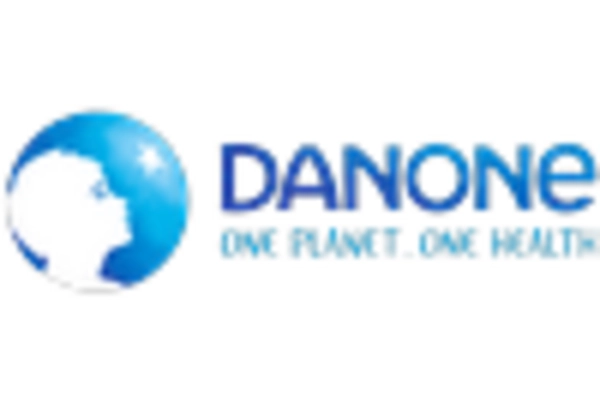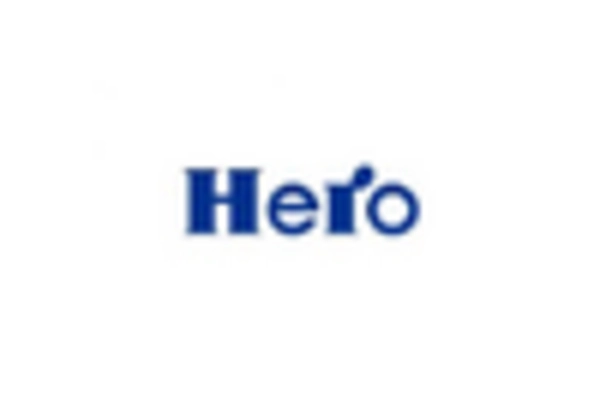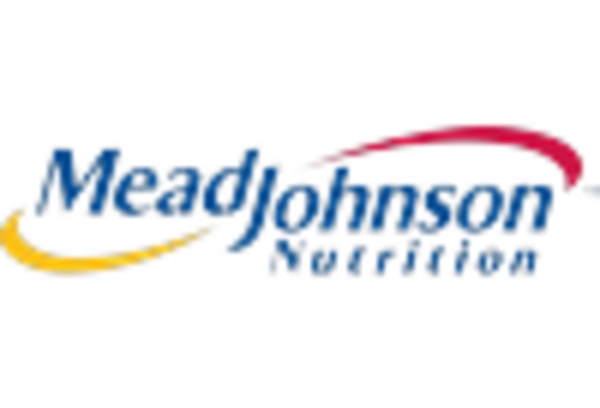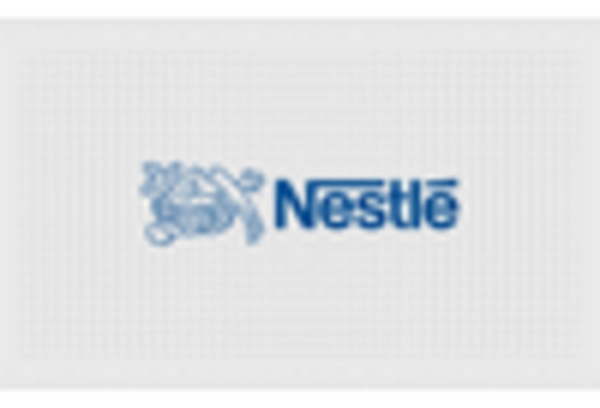Expansion of E-commerce Platforms
The proliferation of e-commerce platforms is transforming the way consumers access maternal nutrition products. With the convenience of online shopping, expectant mothers are increasingly turning to digital channels to purchase specialized nutritional products. This shift is evidenced by a reported 30% increase in online sales of maternal nutrition products over the past year. The maternal nutrition product Market is likely to benefit from this trend, as e-commerce provides a wider reach and accessibility to diverse product offerings. Furthermore, the ability to compare products and read reviews online empowers consumers, potentially leading to more informed purchasing decisions.
Government Initiatives and Support
Government initiatives aimed at improving maternal health are playing a crucial role in shaping the Maternal Nutrition Product Market. Various countries have implemented programs to provide nutritional support to pregnant women, which often includes subsidizing maternal nutrition products. For instance, initiatives that promote access to prenatal vitamins and supplements have been linked to improved maternal and infant health outcomes. Such support not only increases the visibility of maternal nutrition products but also encourages manufacturers to align their offerings with government guidelines. This alignment could potentially enhance the credibility and acceptance of products within the Maternal Nutrition Product Market.
Increasing Awareness of Maternal Health
The rising awareness surrounding maternal health is a pivotal driver for the Maternal Nutrition Product Market. As more individuals recognize the importance of nutrition during pregnancy, demand for specialized products is likely to surge. Educational campaigns and healthcare initiatives have contributed to this heightened awareness, emphasizing the role of proper nutrition in reducing pregnancy complications. According to recent data, nearly 50% of women report seeking nutritional advice during pregnancy, indicating a shift towards informed decision-making. This trend suggests that the Maternal Nutrition Product Market could experience substantial growth as consumers prioritize health and wellness for both mothers and infants.
Growing Demand for Organic and Natural Products
The Maternal Nutrition Product Market is witnessing a notable shift towards organic and natural products. As consumers become more health-conscious, there is a growing preference for products free from artificial additives and preservatives. Recent surveys indicate that approximately 60% of pregnant women prefer organic options, reflecting a broader trend towards clean eating. This demand is likely to drive innovation within the industry, as manufacturers strive to develop high-quality, organic maternal nutrition products. The emphasis on natural ingredients not only aligns with consumer preferences but also enhances the perceived value of products in the Maternal Nutrition Product Market.
Technological Advancements in Product Development
Technological advancements are significantly influencing the Maternal Nutrition Product Market. Innovations in food science and nutrition have led to the development of specialized products tailored to meet the unique needs of pregnant women. For example, advancements in fortification techniques allow manufacturers to enhance the nutritional profile of products effectively. Additionally, the integration of technology in product formulation enables the creation of personalized nutrition solutions, catering to individual dietary requirements. As these technologies continue to evolve, they are likely to drive growth in the Maternal Nutrition Product Market, appealing to a more discerning consumer base.


